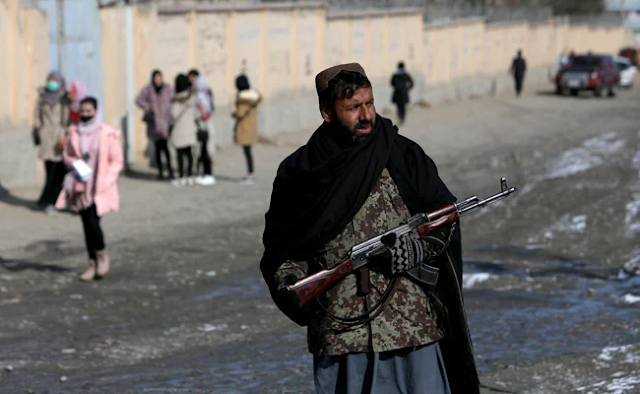US in Crucial Talks with Taliban to Address Afghan Humanitarian Crisis
As the situation in Afghanistan remains precarious following the withdrawal of US troops, the country faces a severe humanitarian crisis. With a focus on providing aid and support to the Afghan people, the United States has initiated crucial talks with the Taliban, seeking to find a collaborative solution to address the pressing humanitarian challenges. The talks represent a delicate diplomatic effort, aiming to ensure the safety and well-being of the Afghan population amid the evolving political landscape.
The humanitarian crisis in Afghanistan has escalated since the fall of Kabul to the Taliban in recent times. Millions of Afghan civilians are grappling with challenges such as food and water shortages, medical crises, displacement, and the loss of livelihoods. Women, children, and vulnerable populations are particularly at risk, facing a lack of access to education, healthcare, and protection. The nation's economy has been severely affected, leading to increased poverty and instability.
Recognizing the urgent need to address the unfolding humanitarian disaster in Afghanistan, the United States has engaged in critical discussions with the Taliban. Despite past hostilities, these talks present an opportunity for both parties to find common ground and prioritize the well-being of the Afghan people. The US seeks to persuade the Taliban to guarantee the safety of humanitarian workers and to facilitate the delivery of aid to affected regions.
The US, in collaboration with international organizations, has committed to providing substantial humanitarian aid to Afghanistan. This assistance includes food supplies, clean water, medical aid, shelter, and support for displaced persons. Additionally, efforts are being made to ensure the protection of women's rights and access to education for girls.
Engaging in talks with the Taliban is not without challenges. The group's previous track record regarding human rights and women's rights has raised concerns among the international community. The US will undoubtedly seek assurances from the Taliban regarding the safety and well-being of Afghan citizens, especially those who have worked with the US and its allies in the past.
Furthermore, the security situation on the ground remains precarious, making the distribution of aid and humanitarian efforts challenging. Ensuring that aid reaches the most vulnerable and remote areas without interference or diversion will be a pressing concern.
The US's efforts to address the Afghan humanitarian crisis extend beyond bilateral discussions with the Taliban. International collaboration is key to maximizing the impact of aid and ensuring that Afghanistan does not become isolated on the global stage. Regional partners, neighboring countries, and international organizations need to coordinate their efforts to provide comprehensive support and contribute to the stability and reconstruction of the country.
The ongoing talks between the United States and the Taliban hold significant promise in mitigating the Afghan humanitarian crisis. The focus must remain on protecting and supporting the Afghan people, regardless of the political changes in the country. Timely and effective humanitarian aid, combined with international cooperation, will play a vital role in averting a catastrophic outcome for millions of vulnerable Afghans. With the stakes so high, finding common ground and working together is essential to bring much-needed relief to those who are suffering the most.



Comments
Post a Comment